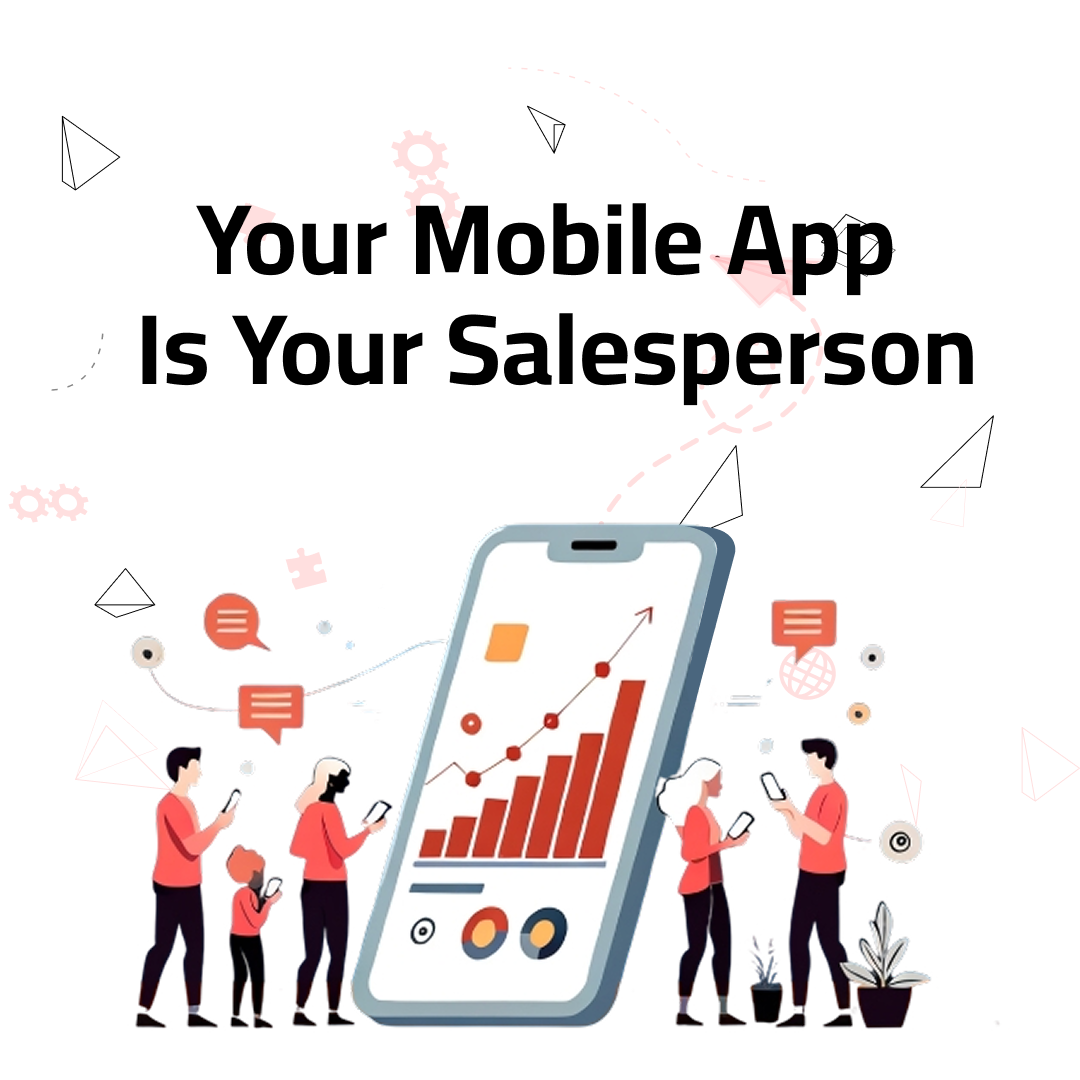
It’s almost 2026, mobile applications are becoming the salesperson or sales representative for your business.
Mobile applications not only greet your users, explain your product, solve problems, cater to a need, keep people coming back, but also, they sell 24/7.
If you’re investing time and money into building a mobile app, but you’re not thinking of it as part of your sales representative, then you should reconsider.
Here’s how your business can benefit from a mobile app and think of it as a powerful sales tool.
1. Your app is the first impression, so make it count
What does a sales representative do first? Do they start immediately selling a product or service? Or do they aim first at building rapport with customers? They smile, shake hands, and immediately make you feel like you're in the right place.
Same thing goes with your mobile app. Your app should do the same. From the moment someone downloads it, the experience must be smooth, clean, and engaging.
Just like your sales team knows how to talk to clients, you should design your app to "talk" to users in a friendly, intuitive way.
2. Know what you’re selling and say it clearly
A good salesperson knows exactly what they’re selling and who they’re selling to.
Your app should be entirely focused on the same.
Whether you’re offering booking services, e-commerce, online learning, or a SaaS product, your app should communicate your value in the first few minutes.
Avoid information overload. You don’t want a salesperson talking for 15 minutes straight. You want them to ask good questions, listen, and then recommend what fits.
The same concept goes for your mobile app. Your mobile app can do this through personalization and smart flows.
3. Follow up but don’t overdo it
A great salesperson follows up. But they don’t spam you with irrelevant messages.
Your app has tools like push notifications, email integration, and in-app messages so use them wisely.
When done right, your mobile app takes users toward completing an action just like a good salesperson would.
4. Use data to improve your pitch
Smart salespeople learn from every interaction. They adjust the way they approach clients based on what worked and what didn’t.
Your mobile app gives you an even bigger advantage: real-time data.
Update your app based on real behavior not assumptions.
Every bug fix, UX improvement, and added feature is like training your salesperson to be better at their job.
5. Make it easy to buy
Here’s the golden rule: If your app is a salesperson, it must make buying effortless.
That means:
6. Keep the connection going
The best salespeople don’t just close the deal; they build long-term relationships and connections. They turn customers into loyal business advocates.
Your mobile app should do the same.
Retention is cheaper than acquisition. If your app makes users feel heard and valued, they’ll come back and bring others with them.
Stop Thinking Features and Start Thinking Sales.
When businesses design mobile apps, they often focus on features not outcomes.
But if you shift your mindset and treat your mobile app like a full-time, scalable, always-available salesperson, everything changes.
It starts to work for you, not just with you.
Need help building an app that actually sells?
Whether you’re building from scratch or improving what you already have, it’s time to stop thinking of your app as a tech project and start seeing it as a sales investment. Contact us now!
